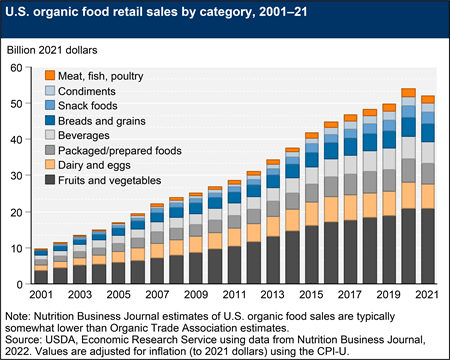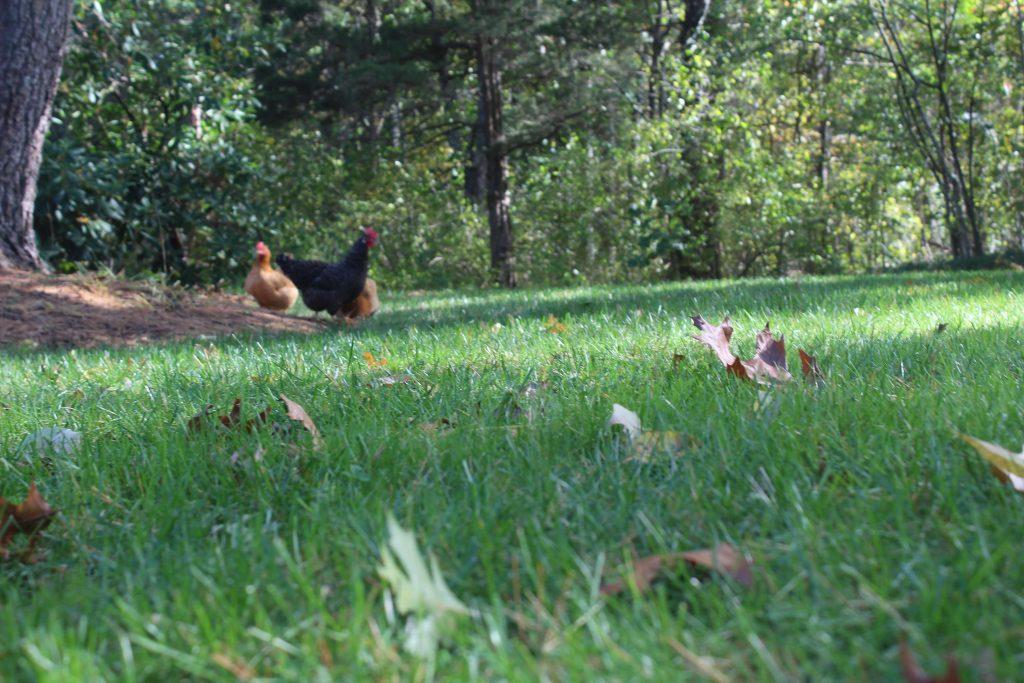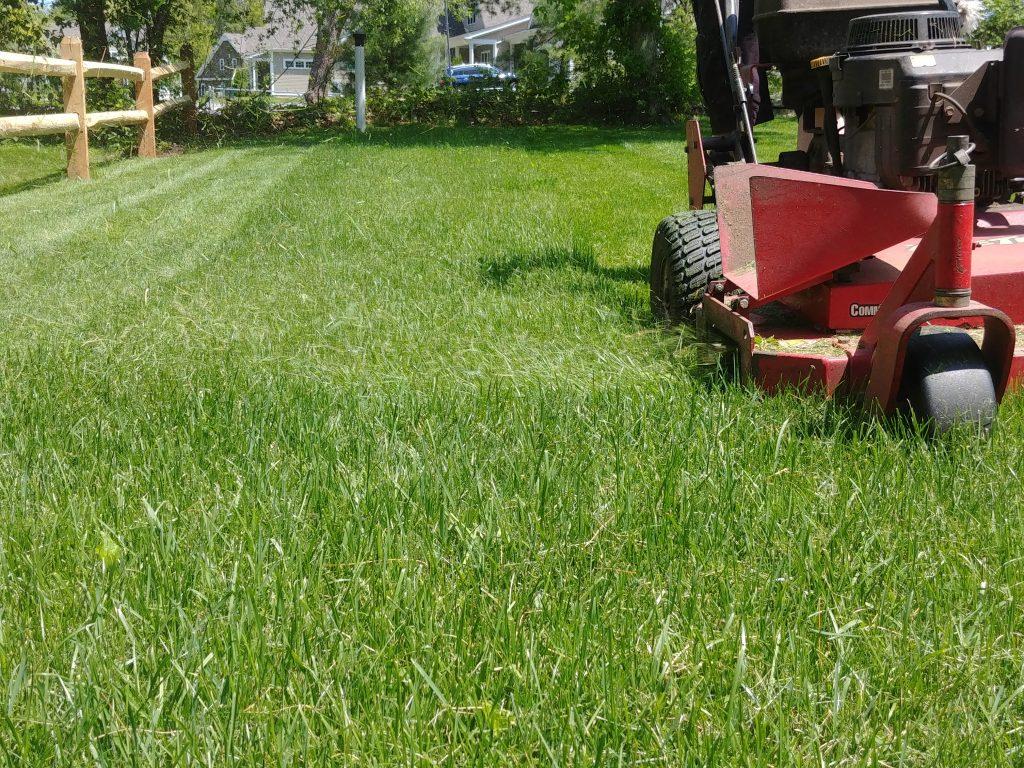Want to start an organic turf care program to expand your landscape business? If not, you really should. Landscape business owners are often faced with tough decisions, especially in the offseason. This is the time to prepare for the upcoming season and how to best grow your business. Let’s look at some of the “Why” and “How” to simplify your business strategy and grow your organic division.
Organic Turf Care Matters
Organic is here to stay. The market for organic is ever improving. The USDA reported approximately $60 billion in organic food sales in 2022 – up from an inflation adjusted $26.9 billion in 2010. You don’t have to be an economist to see the correlation between supply and demand for the consumer market on organic goods. Here is a chart from 2001-2021 that shows the growing trend:

Expanding Organic Consumer Base:
A 2016 study from the Organic Trade Association found that more than 80% of US households purchased organic foods. Moreover, a more detailed demographic indicated that millennials were the most likely to purchase the foods. While this type of market trend may not directly convert to lawn care customers, there’s reason to believe that there will be a strong correlation moving forward. Millennials are predominantly new homeowners and will be seeking this type of service for their home lawn. Their knowledge of these practices and expectations of a healthier ecosystem are higher than the previous generation. Accordingly, they want to participate in bettering the environment.
Many existing homeowners, from Boomers to Gen X’ers are also attached to this organic movement. People want a safer lawn for their grandchildren and pets to play on. The statistics indicate that the market is primed with customers eager to spend dollars on organic foods, goods, and services. We believe it’s a great idea to be prepared for this new customer demographic with a wide range of organic landscape services.
Diversify Your Landscaping Business Revenue
Mixing up offerings is a great way to add revenue streams to your business. If you’re a small company focused mostly on organic gardening, round it out by offering an organic fertility program. If you’re a bigger company focused mainly on mowing and maintenance – add organic fertilizations to capture more customer revenue and provide a better product.
Additionally, organic products and services are often associated with a ‘premium’ label. While we believe everyone should have access to organic goods, the consumer market for them is often willing to pay a higher price tag for participating in improving the environment and doing their part to contribute. Organic prices were once significantly more expensive than their synthetic counterparts. Although, the gap has shrunk significantly and is coming in at a more favorable price point for applicators and consumers.
Improve The Environment!
Organic turf care is designed to improve soil health and avoid negative environmental impacts. By using water insoluble nitrogen and no phosphorus fertilizers, organic products promote the symbiotic relationship of soil biology and plants. In addition, they avoid toxic runoff from soluble fertilizers infiltrating ground water and ending up in community waterways. Additionally, organic turf care is focused on improving soil organic matter, or soil organic carbon, which helps with sequestration of CO2 and water retention. All the while, encouraging deeper rooting which filters water before it makes its way into our waterways. Lastly, organic turf care avoids the use of pesticides and herbicides which have been shown to have terrible effects of applicators and users alike.
“Into the Weeds” is a documentary highlighting California groundskeeper, Dewayne “Lee” Johnson’s. Lee was diagnosed with Non-Hodgkins Lymphoma after years of exposure to popular weed killer glyphosate. While the money machine of agrochemical companies seem endless, more and more stories like this are hitting the mainstream revealing the long-term negative side effects of synthetic chemical exposure.
How to Start an Organic Turf Care Program
If you’re not sure where to start an organic turf care program – we can help! PJC Organic offers support services to landscapers. These support services help identify where you can best incorporate organic products and services and how to best position them in your current business model. Our longstanding practical approach has been helping landscapers, schools and municipalities make the switch to organic turf care for over 20 years!
Here are some FAQs to guide you…
How do I price it?
A popular option with some customers is PJC Organic OTC Start-Up where we work with you on your current business metrics. This includes pricing, equipment, payroll, customer base, and determines options for you to roll out organic into your business. Winter is the perfect season to go through this consultation exercise before you start with contract renewals for the upcoming season.
Can I be profitable?
Most certainly. We often hear that organic fertilization programs are the MOST profitable division of landscapers’ business. This includes businesses that do plant installations, snowplowing, synthetic programs and hardscapes. Therefore, don’t hold yourself back from going green while also making more green.
Is it easy to do?
Going organic is a systems-based approach. While the switch can take some time, overall, it is rather easy to make the change. If you already have skilled applicators the switch can be quicker. With less experienced businesses we see a slight learning curve in year 1 and they tend to blast off from there.
Where do I start?
The short answer is with a soil test. PJC Organic measures 4 primary criteria to get a snapshot of the underlying soil conditions. These criteria include: pH, Organic Matter, Cation Exchange Capacity and Base Saturation. We interpret your customers’ soil test results. From here, we provide you a letterhead with your company logo and fill out a master product spreadsheet that tracks your individual customers and product needs throughout the entire season.
Send us a message to get started, or call us at 978-432-1019.








